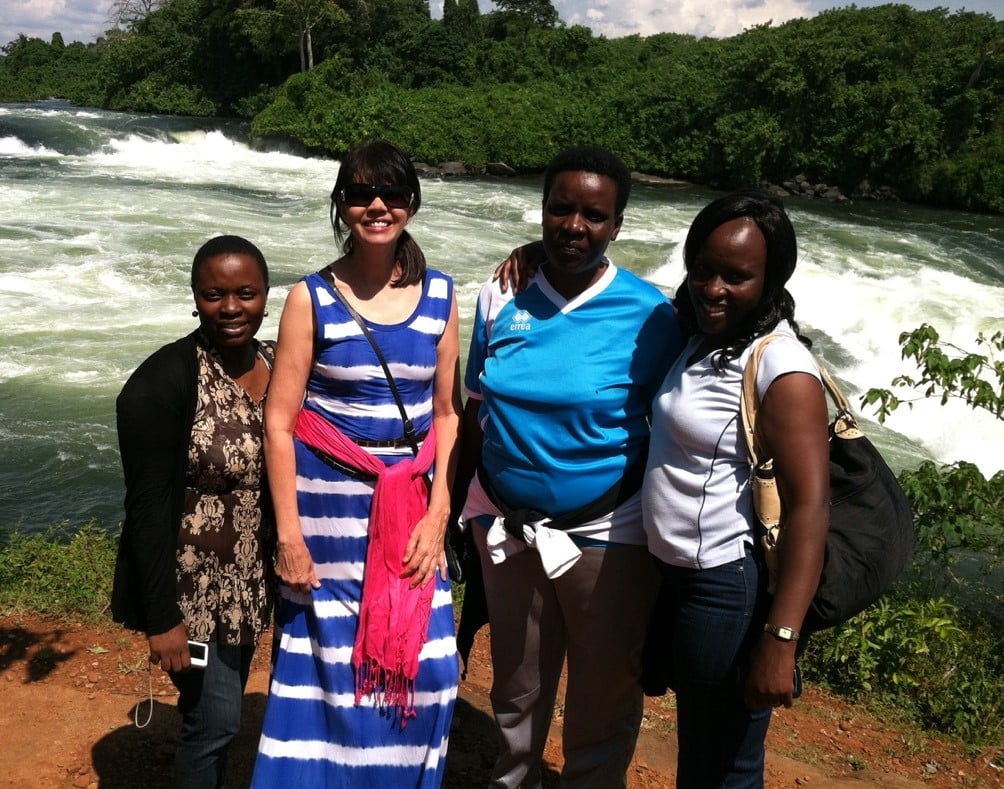Dr. Rebecca Weinbaum chairs Lamar University’s Department of Counseling
Just like a seamless chord progression, Rebecca Weinbaum has always been in perfect harmony with meeting the challenges of each phase of her versatile career. She even drove the band to football games on Friday nights when she was a middle school band director at El Campo (Texas) ISD.
“The district’s funding and availability of bus drivers on Friday nights was low,” she said. “Isn’t that something? Baby, I had my CDL [Commercial Driver’s License] — and I could drive a bus.”
Weinbaum, who earned her undergraduate degree in music, says she fell in love with teaching and even had a few students make the All-State Band. “I also worked at sustaining my ability as a performer and to this day, I actively still play my oboe,” she said.
Natural Progression
Now, Weinbaum is driving a different kind of bus. In mid-July, she was appointed interim chair of the Lamar University Department of Counseling in the College of Education and Human Development. She started as one of five professors in the department the month after she earned her Ph.D. from Sam Houston State University, in December 2010. Three months into her tenure in Beaumont, the department launched its online program.
“I had no idea how quickly the program would grow,” Weinbaum said. “This being said, you might say that I am seasoned in experience for the online program in our department — and now here I am working as department chair. I absolutely love what I do at Lamar, especially with the direction President Ken Evans is taking us with a focus on collaborative, innovative research.”
So, how did Weinbaum go from teaching scales to middle schoolers to chairing a department at a university? The progression, she says, was natural.
“As a life-long educator, my story began with teaching as a career, then moved into school counseling, then clinical counseling, and my world came full circle with teaching — when entering the world of college teaching,” Weinbaum said. “Lamar University is just a really good fit for me because it is a community of like-minded, dedicated professionals who love research and teaching.”
Weinbaum, whose specialty areas are school counseling, child play therapy and counseling supervision, is amazed to see just how far online education has come in such a short amount of time.
“Online teaching and learning has transformed the world of education,” she said. “Much like technology has changed research, it has impacted teaching and learning. Students who use distance learning have greater breadth and depth in the learning process via the internet. The learning is not bound by a time nor a classroom. It certainly is not bound by the knowledge of a single instructor. The internet provides a pretty big platform with plenty of expertise beyond my own. When describing the possibilities of online learning for students, the words from Shakespeare come to mind: ‘The world is your oyster.’”
Creating a Sense of Community
Weinbaum said she loves the relationships she has built with online students. She thinks of those students as one big family, often hearing from them about their career accomplishments.
“Just recently, I received an email from a former student who is a school counselor in Dallas who said that his campus was just awarded the prestigious Texas CREST Award for the school counseling program,” Weinbaum said. “Last week, another graduate told me that her school requested that she expand her Animal Assisted Therapy work to the middle school campus.
“The climate we seek with our distance education in counseling is also about community. In the teaching and learning process, faculty and students work collectively toward student career goals, so when professional accomplishments such as these accompany the process, faculty also celebrate. It is a rewarding experience.”
Teaching Theory and Research
Weinbaum, who has taught every course in the Counseling Department, said her two favorites are counseling theory and research.
“I enjoy counseling theories because it is more than just about learning theories — it is about a philosophical examination of your personal belief system, culture and worldview,” she said. “Basically, it is recognizing that we all have assumptions about how people change. I also noticed that each time I teach this course, I find myself in a new place both personally and professionally. I never teach it twice the same way.”
Much like music, Weinbaum is passionate about research.
“Believe it or not, research is much like counseling theories because it is critical for a researcher to understand culture, personal belief systems and philosophical positions,” she said. “The research course also challenges students to examine the nature of knowing, and understanding how a research study is situated in a particular culture, context and time.”
Leading in All Areas
Whether it’s driving a school bus or chairing a department, Weinbaum leads. In addition to her role at Lamar University, she has served in roles for the Association for Play Therapy, the Texas School Counseling Association and, for three summers, the Organization for Social Science Research in Eastern and Southern Africa. She spent a month each in Kenya, Tanzania and Uganda to conduct research.
“My understanding of research took a whole new direction after teaching in these countries,” Weinbaum said. “I could write an entire book about working with local researchers — it is much different than going to safari as a tourist.”
Writing a book about her research and experiences seems like an inevitability for Weinbaum. If she ever does, there needs to be a chapter about driving a school bus.
Learn more about Lamar University’s online M.Ed. in School Counseling and online M.Ed. in Clinical Mental Health Counseling programs.

